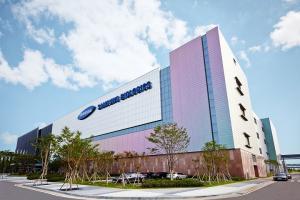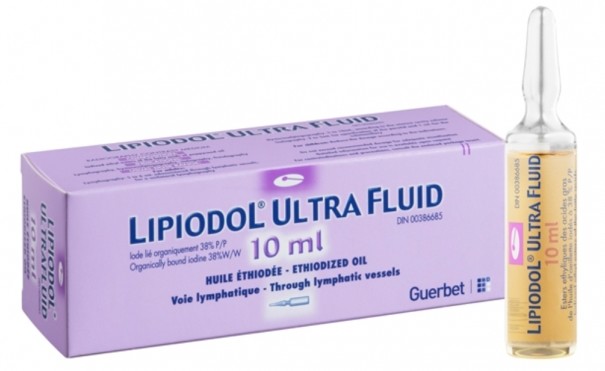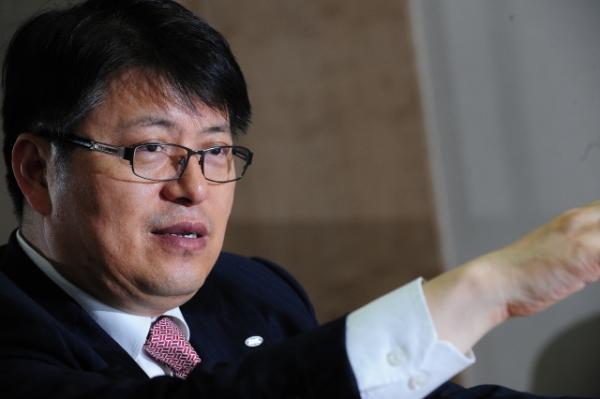Accounting fraud controversy continues at Samsung BioLogics
The Financial Services Commission’s Securities and Futures Commission (SFC) concluded in November that Samsung BioLogics intentionally violated accounting standards in 2015 when changing its controlling status over its affiliate Samsung Bioepis from a subsidiary to an affiliate firm before the biosimilar maker went public. The panel concluded that Samsung BioLogics’ accounting fraud for more two years was “intentional.”

After the panel’s decision, trading of Samsung BioLogics shares was suspended. However, the Korea Exchange’s corporate review committee later decided to keep the firm listed.
The controversy over the alleged accounting fraud is still ongoing, as the Seoul Central District Court recently raided the company for further investigation.
The KRX’ decision to delist Kyung Nam Pharm due to accounting problems sparked debate over market fairness. In March, the Financial Services Commission’s Securities and Futures Commission discovered that the firm made false reports on sales and accounts receivables. The panel fined the company 40 million won ($35,323), designated an auditor for a three-year audit, and referred the case to the prosecutors. The authorities suspended the trading of Kyung Nam Pharm in March. Minor shareholders of the pharmaceutical firm are continuing to protest the decision of delisting. On Cheong Wa Dae’s online petition website, shareholders uploaded petitions that mostly claim the KRX’s review on Kyung Nam was unfair, compared to the decision on Samsung BioLogics which was allowed to stay listed despite suspected accounting fraud.
Pharmaceuticals fail to avoid MeToo, gapjil issues
The “MeToo” movement and gapjil were key social issues in Korea in 2018, and the local pharmaceutical sector also suffered setbacks.

From January 2018, a series of revelations came out employees at pharmaceutical companies experienced sexual harassments from senior workers, or colleagues, or doctors. Such companies include Korea Otsuka Pharmaceutical, Janssen Korea, Pfizer Korea, and Novartis Korea. At Janssen Korea, a former female employee revealed in detail how seniors, colleagues, and doctors sexually harassed her and alarmed how such cases were prevalent in the industry. At Novartis Korea, a female senior sexually abused a male employee, and the case spread the perception that sexual harassment can occur regardless of gender. With the spread of the MeToo movement, the Ministry of Health and Welfare changed rules to cancel the designation of the innovative pharmaceutical company if its executives make serious ethical violations including sexual crime, assault, and insult.
Gapjil issue also stirred up the pharmaceutical sector. A chairman at a drugmaker had to step down from the post as well as other CEO posts at subsidiaries after a recorded audio file revealed that he cursed at the staffs. A midsize pharmaceutical firm’s owner also verbally attacked a chauffeur. Another drugmaker owner, a grandchild of the founder, cast an ashtray against subordinates and cursed at them during a meeting.
Lipiodol pricing leads to supply shortage
Lipiodol, the only contrast medium used in transarterial chemoembolization (TACE) procedures, was in shortage, threatening the lives of liver cancer patients and making physicians worried.
Guerbet Korea obtained approval for the drug in 1998 in Korea, and the contrast medium was designated as a “shortage-prevention drug” for which the government guarantees the manufacturing cost.

The controversy sparked in earlier this year when the company and the government failed to reach a consensus during drug pricing negotiations. With not many Lipiodol stocks left, hospitals struggled with a shortage of the drug. Patients and civic groups lambasted Guerbet Korea for demanding excessive price hikes in Lipiodol when there was no alternative. As experts raised concerns that hospitals might discontinue liver cancer surgeries due to the shortage of Lipiodol, the government came up with measures to supply the raw material, import generics, or produce at a local drugmaker. Fortunately, the government and the company agreed to raise the price of Lipiodol, ending the supply shortage of the drug, in August.
Jackpot deals continue in biotech sector
The biotech industry continued to enjoy a series of large-scale licensing-out deals this year. Yuhan Corp., iNtRON Biotechnology, and Kolon Life Science inked such deals.
Yuhan said in November that it signed a $1.25 billion licensing-out deal with Janssen Biotech. The upfront payment was set at $50 million.
Under the contract, Yuhan will receive a royalty for the EGFR (epithelial growth factor receptor) immunotherapy development, licensing and sales milestones. Based on net sales, it will also receive running royalties. All global rights except Korea are provided to Janssen, and the contract period was set from the date of the contract to the expiration of the right to the patent country by country, or 12 years after the first commercial sales date country by country.
Intron Biotechnology also clinched a jackpot deal. The company had the licensing-out deal with Roivant Sciences for SAL200, a novel biologic to combat super bacteria.
The deal was worth $667.5 million with an upfront payment of $10 million. Intron Bio is to receive running royalties on net sales in low double digits under 20 percent, after commercialization.
Kolon Life Science signed a licensing-out agreement with Mundipharma to launch Invossa-K, a cell gene therapy for osteoarthritis, in Japan. Mundipharma owns exclusive rights to research, develop, and commercialize Invossa in Japan. The contract period is 15 years after launching in Japan. The total contract amount is $591 million, including an upfront payment of $26.65 million and $565 million in milestone payments that are paid when each milestone is achieved.
Drugmakers banned from offering promotional aids

From 2019, pharmaceutical companies will not be able to offer promotional aids to doctors under the new code of ethics. The International Federation of Pharmaceutical Manufacturers Association (IFPMA) recently revised the code of ethics to prohibit personal gifts and promotional aids to healthcare professionals from next year. Korea’s two representative pharmaceutical groups -- The Korea Pharmaceutical and Bio-Pharma Manufacturers Association (KPMA) and the Korea Research-based Pharma Industry Association (KRPIA) – decided to follow suit.
The IFPMA’s ban on promotional aids in June includes giving money for congratulation and consolation, customary gifts, and errands. Promotional materials allowed are pens or notepads printed with company logos used by participants in academic and educational events.
Although both domestic drugmakers and multinationals agreed to accept the new rules, they are agonizing over how to promote medicines.
Local companies are particularly struggling because they used to focus on distinctive promotional aids to win brand recognition and sell similar generic drugs in severe competition.
Capitalizing R&D costs hits biotech firms
The biotech industry struggled with the issue of capitalizing research and development expenses. As biotech firms have to keep investing in new drug development without income, they tend to record R&D costs as intangible assets in their accounting books. However, the Financial Supervisory Service (FSS) carried out inspections on 10 companies, suspecting that the companies inflated operating profits by counting R&D expenses as intangible assets. The 10 firms include Il-yang Pharmaceutical, CHA Biotech, CMG Pharmaceutical, Genexine, and ISU Abxis. However, most of them received light punishment, and the FSS announced the accounting guidelines for pharmaceutical and biotech firms’ R&D cost reporting. The FSS said new drug developers could capitalize R&D spending from phase-3 trials, and biosimilar developers, from phase-1 trials, respectively. This was because it would be difficult to objectively verify their asset value in the absence of the confirmation on the investigational drug’s safety and efficacy in a large number of patients in the long term, the FSS said.
Obesity drug Saxenda illegally sold amid huge popularity
Saxenda, an obesity treatment getting popular in Korea, has been on the headlines due to illegal online sales and smuggling into China.

Saxenda arrived in the domestic market in March, and the demand for the weight-loss treatment has rapidly risen since prescriptions started in April. The treatment has taken the Korean obesity market by storm, and the supply went short often.
Although some raised concerns that patients might fear Saxenda’s injection form, the treatment won huge popularity with people becoming less scared of injections and excellent efficacy in weight control.
However, the rapid sales growth in Korea did not reflect the treatment’s problems. The Korean authorities began investigating a pharmaceutical wholesaler for allegedly selling the obesity treatment to China through an illegal channel.
Local media reports raised suspicions that various online and offline sites sold the obesity treatment illegally. Some clinics reportedly received warning emails from the authorities after posting an ad of Saxenda within the clinic and on the clinic’s website directly.
Nature Cell suspected of manipulating stock prices

Ra Jeong-chan, CEO of Nature Cell that developed Jointstem, the company’s knee degenerative osteoarthritis injection, drew media attention as he was arrested for manipulating stock prices. The prosecutors said Ra allegedly gained 20 billion won in illegal profits by manipulating stock prices using false information. The prosecution accused Ra of massive profiteering by sending out fake press releases to the media regarding a clinically unproven drug candidate and using an internet media platform launched by the company to advertise that a clinical trial for the drug succeeded falsely.
Nature Cell had sought to receive conditional approval for Jointstem from the Ministry of Food and Drug Safety. However, the ministry’s central pharmaceutical affairs council concluded that Nature Cell’s plan for the clinical trials and study results were not valid for conditional approval.
The regulator permits conditional approval by reviewing phase-2 clinical trials data, on the condition that the drugmaker submits phase-3 trials materials, usage data, and safety use measures (such as specific use within a particular medical institution) to the regulator later.
Seoul to spend massive money in the bio-health sector
The Moon Jae-in administration said it would aggressively support the healthcare sector for job creation and future economic growth, vowing to ease regulations.
The government also announced “A Strategy to Nurture Biohealth New Growth,” to support the development of new drugs that utilize new technologies such as artificial intelligence (AI) and IT, the advancement of clinical trial systems, and the upgrading of the new drug development infrastructure of advanced medical complexes (in Osong and Daegu). The plan included the expansion of R & D for innovative medical devices such as micro-medical robots and caring robots.
Considering that the biohealth businesses need massive costs for commercialization after the technology development, the government promised to expand the investment in start-up companies. The government also pledged to nurture experts and support customized precision medicine in the bio-health sector.
Pharmaceuticals use AI to develop new drugs
The pharmaceutical industry and the government said they would aggressively utilize artificial intelligence (AI) in new drug development.

Their move aims to overcome the problem of time-consuming and expensive development of new medicines. A report noted that while a researcher can scan 200-300 papers a year, an AI-based machine can search 1 million documents during the same period.
Yuhan Corp. and JW Pharmaceutical signed a memorandum of understanding with Syntekabio in April and May, respectively, on integrating a genome and big data-based artificial intelligence drug development platform technology into the traditional drug development process. The companies said they would be able to discover anticancer active substances, and biomarkers through genome analysis of clinical trial patients.
The Korea Pharmaceutical and Bio-Pharma Manufacturers Association (KPBMA) launched a task force to support AI-based new drug development. It is also seeking to establish the New Drug Development AI Center.
The government is actively helping the pharmaceutical sector’s introduction of AI, designating AI-based drug development and innovation in healthcare as major tasks in the era of the Fourth Industrial Revolution.

